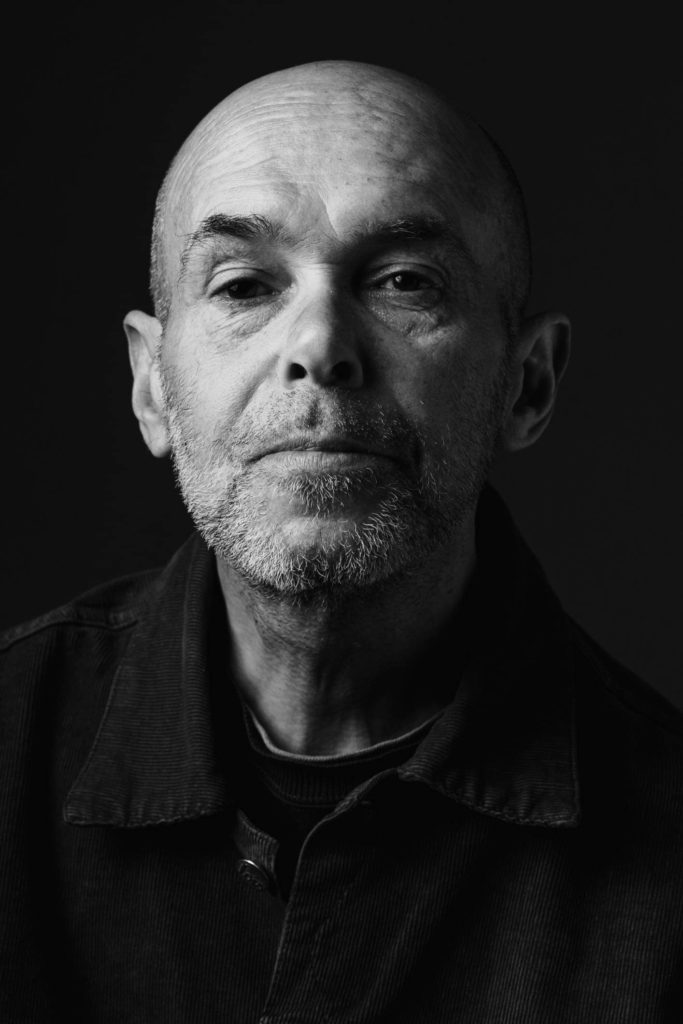In the 1980s, Stephen Cresser (aka Cressa) was a comrade of Happy Mondays and integral to the Stone Roses. He later became addicted to heroin & homeless. In this exclusive extract from his new short format book ‘Not All Roses’, Dave Haslam presents a counter-narrative to the portrayal of Manchester’s music scene during and since the mid-1980s as a series of success stories. ‘Not All Roses’ tells of when things don’t always go right, and life gets desperate…

Photo: Debbie Ellis
In October 1985, Happy Mondays performed at Corbieres wine bar playing to a capacity audience of around seventy. The band’s first single, an EP with a lead track called ‘Delightful’, had just been released. At roughly the same time, the Stone Roses had released ‘So Young’. Neither single attracted more than minimal interest.
Stone Roses singer Ian Brown had been a fan of bands like the Cockney Rejects but also understood the joys of ska and Northern Soul, guitarist John Squire was hanging out a lot with Cressa and together they were getting deep into 60s psychedelia, but a kind of sub-punk dominated the early Stone Roses sound. In those early days their image was ill-defined, almost to the extent that each member looked like they belong to a different band, a collection of flat tops, roll-necks, leather waistcoats, ruffle shirts, bandanas and tight-legged trousers.
The Roses and Mondays co-existed in Manchester through the second half of the 1980s, a relationship cemented in November 1989 when both appeared on the prestigious TV show Top of the Pops. According to Simon Spence, who has written biographies of both, Cressa was ‘the main bridge between the two groups’.
Cressa was an influence on the direction the Stone Roses took on the final laps of their journey towards their settled and successful sound, especially in encouraging their music to absorb 1960s psychedelia. He was a fan of the likes of Love, and the Chocolate Watch Band, with their roots in the sixties, but also the contemporary so-called ‘Paisley Underground’ American bands such as the Rain Parade. To this day, Cressa’s favourite album is the Rain Parade’s Emergency Third Rail Power Trip, which, for Stone Roses fans interested in their precursors, is well worth a listen.
Cressa’s style choices helped inspire the Stone Roses to adopt flares. This became a key characteristic of the band, emulated by fans, and frequently discussed in the media. In April 1988 in i-D magazine, John Godfrey wrote ‘Cresser’s flares are the envy of the Haçienda. He is the face of Manchester, a man who never buys himself a drink.’
In 1988, John Squire asked Cressa to work for him at live gigs, taking responsibility for changing guitar effects. Cressa’s interventions could only be done conspicuously, not remotely. He’d usually be just behind John’s guitar amp, or just to John’s right, and visible, participating in, and enhancing, the band’s performance.
After first taking his place near John Squire for a gig in St Helens, Cressa was visible onstage at all the subsequent Stone Roses live shows, and up to and including Spike Island and Glasgow Green. After Glasgow Green in June 1990, though, there was considerable falling away of energy in the Roses camp, and a long wait for the next album.
In the first decades of the new century, whenever Stone Roses fans and Madchester devotees posted on message boards swapping information and memories, and speculating about reunions, invariably somebody would ask ‘Whatever happened to Cressa?’
In the last months of 2021 Cressa and I began to meet regularly; the first time in a café in Hulme, Manchester, the day before his birthday, in October 2021. Then and since, in our conversations we’ve been reliving Cressa’s 1980s, and bringing the story up to date. ‘I’ve had ten years of hardship’, he tells me. ‘And it’s only the last three and a half, four years, that I’ve managed to get on the right track and have somewhere to live.’
Life began to deteriorate for him around 2009: ‘I was homeless, heroin addicted, alcoholic, on the streets. I’d either be sofa surfing or in a doorway. It was what it was and it wasn’t pretty. It’s not easy either, especially winter. I was thinking about how I used to be up at 6 to go begging when it’s fucking freezing.’
For five years, Cressa wasn’t even signing on. He was living by begging or ‘ham and eggin’’ as he calls it. According to Cressa, one of his regular and best places for begging over the years has been outside the Manchester Academy music venue, although at some gigs he’d still get nothing. ‘And one of the best bands for ham and eggin’ ever is Sleaford Mods, their crowd is so right on.’
And generous?
‘I got £100 on the way in and £100 on the way out.’
They’re helping you.
‘But I’m sitting there thinking am I a fake? I want the money and I’m going to be able to get some food, a B&B or pay someone to let me stay at their gaff. But I’m going to buy drugs with it as well.’
You feel bad about getting £200 in your pocket?
‘Of course, I’m not happy about it. Am I deceiving them? All right I was homeless, and I did need the money but they don’t know I was going to buy drugs with it. You’re never happy about living that life, man, you’re never happy.’
*
Dave Haslam’s ‘Not All Roses: The Life & Times of Stephen Cresser’ is available online here (£8.00).